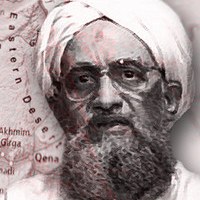![]()
Sunday, January 12, 2014 | By Barry Rubin
This article was first published by The Rubin Report under the title “The Hopelessness of Victory”. It is reprinted here for your convenience with author’s permission.
“So, let me just say, it went bad for us over there, but that was our job. That’s what we did. We didn’t complain about it.” — Former Navy SEAL Marcus Luttrell
The Obama administration is engaging in over a dozen failed operations in the Middle East, and reason shows just why they’re failing: The Islamist philosophy is totally different from theirs. The Islamists are indifferent to the cost of victory, but this makes them not give up.
“Hopelessness really never came into it,” Luttrell said, “… Because there was never a point where we just felt like we were hopelessly lost or anything like that. We never gave up. We never felt like we were losing until we were actually dead.”
Clearly, the Obama administration does not understand Middle Eastern regimes and terrorist organizations, and if it doesn’t, it will meet miserable defeats. Luttrell understands the minds of the terrorists and how to bring victory–at least as close an approximation as there can be–to the Middle East.
The terrorist does not begin to calculate a winning strategy just because he believes in an ordained victory from Allah. He will not engage in strategy or tactics that are troublesome. For example, do you think that September 11, 2001, will lead to victory or advancement? That depends. It is shaping the regional issues, the play of what has been happening, lives and deaths, political situations, and designation of resources. Just because you have a strategy without a victory doesn’t mean that the strategy will not have long-term effects.
It shapes the rules of the game.
In addition, the Obama administration’s goals have not been consistent. If you can’t depend on someone for consistency in times of trouble, you can’t depend on them at all. The United States has become an untrustworthy ally, as many Middle Eastern regimes can attest to.
Let’s look at how Egypt has played its cards over the last three years. You could say, as probably a Western statesman like Vice President Joe Biden would, that the Muslim Brotherhood “couldn’t win.” But wait, all they need to do is do enough to block others’ victories. If the Muslim Brotherhood, or al-Qa’ida for that matter, never gave up, they defied the enemy victory. That is a strategy for triumph.
After having published an article on the Muslim Brotherhood, in which I generally analyzed their situation, I received a very nice critique from Egypt’s chief Muslim Brotherhood magazine, which completely understood it and yet concluded that the Brotherhood strategy was right. They understand us more than we understand them. If they never despair, they spend all the blood and treasure that is required, and Allah–in addition to other measures–will give them victory.
So let’s explain why Obama and his administration do not understand the Middle East.
Obama sees Egypt as a huge conventional military power (He doesn’t want it to obtain nuclear weapons). Egypt can easily call the United States’ bluff. Egypt must make certain compromises, but with popular support and going to great lengths through use of violence, the army knows it can win. Egypt’s new government has mass popular support, unity of the army, and inside national security.
Also, there are some key factors that Obama doesn’t see, such as the alternative of Saudi aid and Russian arms. As I said when Egypt’s Army was originally going to go out of power in 2011, “the Arab and Egyptian warriors, they cannot compromise on some issues.” Ultimately, they were bold soldiers, not politicians.
Theoretically, they would rather commit hara-kiri then betray their people for the wrong reasons. But again, note the following: By supporting the Egyptian Muslim Brotherhood, Obama shows he is not a trustworthy ally. And besides, Obama has shown that he runs away from Russian arms and has been outbid by Saudis. Who is going to break, Egypt or Obama?
This leads to an important factor: He who wins is he who will compromise less, not he who is willing to compromise more.
This principle is the same everywhere in the Middle East. Iran is willing to risk having the negotiations fall apart, and so is Karzai’s government in Afghanistan. Remember, he who is willing to let the negotiations fall apart will win, like a game of chicken not a game of bridge, like a game of backgammon not like chess.
A new story has just come out in Tunisia in which the government fell apart due to the army’s pressure. Quietly, that was the end of the Tunisia’s democratic dream. And in fact, all true Arab, Turkish, and Iranian democracies have fallen apart.
The same has been true of the Iraqi democratic dream. Iran, not the United States, is the country that has played the game well there.
This is a game of chutes and ladders.
In another example, the West thinks the Syrian political opposition, politicians, and terrorists actually care how many people they are willing to sacrifice, when in fact they are willing to sacrifice millions. The West simply cannot understand that these people are fighting for different stakes. They think that materialistic consideration and pragmatism will determine their decisionmaking.
Yet everybody who knows the Middle East knows the problem is that you need to think the Middle Eastern way, not the Western way. Or perhaps to cite another Western leader, “You come with a rock, we come with a knife. You come with a knife, we come with a gun.” The closest thing in American politics to Middle East politics is that of Chicago or Boston with its bridges and outlets.
Western policy is deemed to flourish in compromise; Middle Eastern on victory.
No extent of compromise is going to cause radical nationalists and Islamists to make real peace. Yes, Islamists can be and are often pragmatic, particularly in order to obtain millions of dollars of trade and nuclear weapons; but that is only if they not required to give much in return.
Here’s an anecdote. A Western intelligence agent was interviewing captured Afghan terrorists. He said, reasonably, “Why did you come here?” They responded “To kill you,” and attacked him with a knife. Several people in the camp were killed.
If you don’t know why the Muslim Brotherhood will not make peace with Arab regimes, you cannot understand the Middle East.



 RSS
RSS











Latest Comments
Hello Mike, Thank you for your positive feedback to the article. I felt there wasn’t too much critical analysis of ...
Thanks for this considered and well constructed article. A follow up article on the manner in which the editorial contro...
THE CLUELESSNESS OF CLAIMING THAT OBAMA'S MIDDLE EAST POLICIES WERE A FAILURE CANNOT BE FURTHER FROM THE TRUTH, WHAT THE...
As long as Obama is the president of the usa do not trust the us government......
Thank you for an good read....